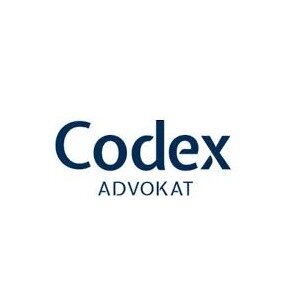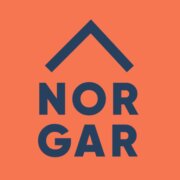Best Employer Lawyers in Norway
Share your needs with us, get contacted by law firms.
Free. Takes 2 min.
Or refine your search by selecting a city:
List of the best lawyers in Norway
About Employer Law in Norway
Employer law in Norway is governed by a comprehensive framework designed to protect the rights of both employers and employees. Central to this framework is the Working Environment Act, which outlines the obligations of employers concerning employee well-being, working conditions, and workplace safety. The Norwegian labor market is known for its collaborative approach, with strong social dialogue between employers, employees, and trade unions. The laws emphasize equality, prevention of discrimination, and maintaining a healthy work-life balance.
Why You May Need a Lawyer
There are several scenarios where employers may require legal assistance in Norway:
- Dispute Resolution: When conflicts arise regarding employment contracts, wrongful termination claims, or workplace disputes, a lawyer can provide guidance and representation.
- Compliance Issues: Navigating the complexities of Norwegian employment law to ensure compliance with regulations, particularly when setting up or restructuring a business.
- Contract Drafting: Ensuring that employment contracts are explicit and adhere to legal standards.
- Union Negotiations: Especially in sectors with strong trade union presence, legal advice is crucial during collective bargaining negotiations.
- Discrimination Claims: Legal support is vital in defending or pursuing claims related to workplace discrimination.
- Health and Safety Compliance: Adopting practices that comply with the stringent health and safety laws in Norwegian work environments.
Local Laws Overview
The Norwegian employer legal framework includes several key components:
- Working Environment Act: This is the cornerstone of Norwegian employment law, establishing minimum rights and obligations concerning working conditions and employee safety.
- Equality and Anti-Discrimination Act: Aimed at promoting equality and preventing discrimination based on gender, ethnicity, disability, and more.
- Holiday Act: Regulates the entitlement of four weeks and one day of annual holiday for employees, although many workplaces offer five weeks.
- Employee Co-determination: Employers with more than 30 employees must involve employee representatives in important decisions affecting the workforce.
- Data Protection: With laws on personal data protection, employers must handle employee information responsibly and transparently.
Frequently Asked Questions
What is the legal minimum wage in Norway?
Norway does not have a statutory minimum wage, but wages are often agreed upon through collective agreements between trade unions and employers.
How much notice must I provide for termination?
The notice period for termination depends on the duration of employment, but the minimum is typically one month according to standard practices.
What are the working hours regulations?
Normal working hours should not exceed 40 hours per week, with certain agreements allowing shorter working hours.
Are there special protections for parental leave?
Yes, Norwegian law mandates generous parental leave benefits and encourages shared parental responsibilities between both parents.
Is it mandatory to join a trade union?
No, joining a trade union is voluntary in Norway. However, many workers choose to join for better bargaining power.
Can an employer monitor employee emails?
An employer can monitor employee emails but must follow strict rules regarding employee consent and privacy rights.
What constitutes wrongful termination?
Wrongful termination may include dismissals not based on justified grounds such as competence, misconduct, or market conditions.
Are non-compete clauses enforceable?
Non-compete clauses are enforceable but must comply with specific legal requirements and be reasonable in terms of scope and duration.
How are disputes commonly resolved?
Disputes are usually resolved through negotiations, mediation, or arbitration and rarely go to court unless absolutely necessary.
What obligations do I have for workplace safety?
Employers must adhere to strict health and safety regulations, providing a safe working environment and training on safety protocols.
Additional Resources
For additional resources and support regarding employer law in Norway, consider reaching out to:
- Norwegian Labour Inspection Authority: Offers guidance on compliance with health and safety laws.
- The Norwegian Bar Association: Can help you find reputable lawyers specializing in employment law.
- Arbeidstilsynet (The Norwegian Labour Inspection Authority): Provides information on working conditions and legal responsibilities.
- The Equality and Anti-Discrimination Ombud: Provides resources for addressing discrimination in the workplace.
Next Steps
If you need legal assistance in employer law, consider the following steps:
- Assess Your Situation: Clearly identify the issue you are facing and gather all relevant documentation.
- Consult a Lawyer: Contact a lawyer specializing in Norwegian employer law who can provide tailored advice for your specific situation.
- Prepare for the Consultation: Make notes of your questions and key details about your case to discuss with your lawyer.
- Consider Alternative Dispute Resolution: Mediation or arbitration can be effective ways to resolve disputes without going to court.
- Stay Informed: Regularly update yourself on employment laws and practices to ensure compliance and minimize potential legal problems.
Lawzana helps you find the best lawyers and law firms in Norway through a curated and pre-screened list of qualified legal professionals. Our platform offers rankings and detailed profiles of attorneys and law firms, allowing you to compare based on practice areas, including Employer, experience, and client feedback.
Each profile includes a description of the firm's areas of practice, client reviews, team members and partners, year of establishment, spoken languages, office locations, contact information, social media presence, and any published articles or resources. Most firms on our platform speak English and are experienced in both local and international legal matters.
Get a quote from top-rated law firms in Norway — quickly, securely, and without unnecessary hassle.
Disclaimer:
The information provided on this page is for general informational purposes only and does not constitute legal advice. While we strive to ensure the accuracy and relevance of the content, legal information may change over time, and interpretations of the law can vary. You should always consult with a qualified legal professional for advice specific to your situation.
We disclaim all liability for actions taken or not taken based on the content of this page. If you believe any information is incorrect or outdated, please contact us, and we will review and update it where appropriate.
Browse employer law firms by city in Norway
Refine your search by selecting a city.













